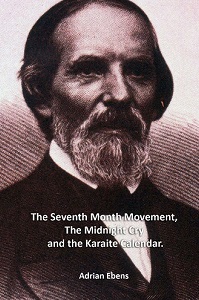`Deus Est Caritas' - Pope Benedict and `God is Love'
When the Bible speaks of `love' it predominantly speaks of the unconditional love which the Father and Son have for us. But this love is so utterly beyond human comprehension, that it took Calvary to demononstrate it to us, so that we might begin to understand it. The common perception of love, is that the greatest form of love there is, is that a man may lay down his life for his friends.
`Very rarely will anyone die for a righteous man, though for a good man someone might possibly dare to die.' (Rom. 5: 8)
This was indeed the perception of love which the Greeks had, and they believed that it is so magnificent, that even prompts men and women to marry and have babies. The Greeks believed that this procreating action mirrored the divine activity of the God, and the Greeks called this `Eros', which is equivalent to the Roman god Cupid, who shoots his arows into our hearts. In the first century, the disciples of Christ `turned the world upside down' (Acts 17: 6) with a completely new concept of love which was so breathtakingly refreshing, that it instantly made enemies of you, or disciples of you, for there was no common ground. It revealed that the noblest human aspirations of love were best described as non-love, or disguised selfishness, for the `agape' of Christ revealed in stark contrast that while all human ideas of love, such as the `eros' of the Greeks were based upon the idea that only the good are worth saving, the `agape' of Christ reaches out to all men - especially the unlovely, for `when we were enemies, we were reconciled to God by the death of His Son' (Rom. 5; 10).
`Eros' and `agape' are best defined as ascending and descending love. `Agape' is often contrasted with eros, which is not found in the New Testament though it is prominent in Greek philosophy. Eros can refer to a vulgar, carnal love, but in the context of Hellenic thought it takes the form of spiritual love that aspires to procure the highest good. Eros is the desire to possess and enjoy; agape is the willingness to serve without reservations. Eros is an ascending love that proceeds from the earthly to the heavenly; agape is a descending love that proceeds from the heavenly to the sinful. Eros is attracted to that which has the greatest value; agape goes out to the least worthy. Eros discovers value wheras agape creates value. Agape is a gift love whereas eros is a need love. Eros springs from a deficiency that must be satisfied; agape is the overflowing abundance of divine grace. For Plato eros is not found in God, for God is devoid of passion. Plotinus, on the other hand, made a place for eros in God, but this was simply God reflecting upon his own goodness. (`God the Almighty': Power, Wisdom, Holiness and Love', D. Bloesch, 2006, p. 147.)
`Eros' is described as ascending love because the Greeks believed that God is unknowable and ineffable; which is to say that as it is impossible for God to descend to the material plane in which fallen man lives (for reason this would be a corruption of His divinity), then we must seek Him out and do good `works' to prove that we are worthy, and purify our souls so that our souls (which are assumed to be immortal and thus inherently divine), might reunite with the pantheist One God-in-all at death. Pope Benedict VI described `eros' in this manner:
`True, eros tends to rise "in ecstasy" towards the Divine, to lead us beyond ourselves: yet for this very reason it calls for a path of ascent, renunciation, purification and healing.' (`Deus Caritas Est' - "God is Love"; Pope Benedict's First Encyclical Letter.)
The rising `in ecstasy' which Pope Benedict refers to is the sacred rite of temple prostitution, by which one imitated the procreating action of the God's in sexual union, at which orgasm mimicked the blissful transcendence of the soul at death, when the soul supposedly leaves the body and unites with God. Thus, for the Greeks, salvation consisted of the movement of the creature toward the Creator, and `eros' can be defined as `works', while `agape' may be defined as `faith'. This is the strictly Protestant understanding of `agape' - which falls far short of the true intent of the word. For the Apostle Paul informs us that he wished to know nothing except Christ crucified, (1 Cor. 2: 2), for the `agape' of Christ behooved him, or compelled him(Greek - `ophelio' - compelled) to suffer the second death for us, so that we might not suffer it ourselves! The apostle further defined this sanctifying love which Christ has for us, by informing us that true faith is a `faith that works by love (agape)' (Galatians 5: 6). It is this love of Christ which Christ imparts into our stony hearts by the mysterious workings of His Holy Spirit that writes His law in the fleshy tablets of our hearts and in our minds (Jeremiah 31: 33), by bringing us to a heart-felt appreciation of the cross - so that we become like Moses, who was willing to forgo his eternal life so that his people might be saved; thus reproducing the character of Christ in those who are simply willing to forgo their self-dependence upon their own ego, for they `let this mind be in you that was in Christ Jesus' (Phillipians 2: 5). This is the true breath-taking import of the `agape' of Christ! Pope Benedict then makes the point that :
`Indeed, the prostitutes in the temple, who had to bestow this divine intoxication, were not treated as human beings and persons, but simply used as a means of arousing “divine madness”: far from being goddesses, they were human persons being exploited. An intoxicated and undisciplined eros, then, is not an ascent in “ecstasy” towards the Divine, but a fall, a degradation of man. Evidently, eros needs to be disciplined and purified if it is to provide not just fleeting pleasure, but a certain foretaste of the pinnacle of our existence, of that beatitude for which our whole being yearns.' (ibid.)
Pope Benedict's answer, is that God is not merely `eros', but is `agape' as well, for God reflects both forms of love to us:
`Even if eros is at first mainly covetous and ascending, a fascination for the great promise of happiness, in drawing near to the other, it is less and less concerned with itself, increasingly seeks the happiness of the other, is concerned more and more with the beloved, bestows itself and wants to “be there for” the other. The element of agape thus enters into this love, for otherwise eros is impoverished and even loses its own nature. On the other hand, man cannot live by oblative, descending love alone. He cannot always give, he must also receive. Anyone who wishes to give love must also receive love as a gift.' (ibid.)
According to Pope Benedict, these two forms of love work in unison by revealing to us the character of God. Just as St. Augustine believed that the souls of men dimly reflect the Trinity, so also do we find that this is inferred by Pope Benedict in this letter, for man also partakes of the `ascending love' of `eros', in which `ascending love' is likened to the covetous and seeking love which Adam acquired after he fell, while the `descending love', or `agape' of Christ is likened to:
` . . . the example of Moses, who entered the tabernacle time and again, remaining in dialogue with God, so that when he emerged he could be at the service of his people. “Within [the tent] he is borne aloft through contemplation, while without he is completely engaged in helping those who suffer.' (ibid.)
Thus Pope Benedict sees both eros and agape as rooted in man's very nature, in much the same sense that the pagans of ancient times believed in dualism; which is to say that God is both good and evil - for these were just opposing aspects of His character. This is assumed because the underlying Platonic philosophies which gird the Catholic perception of love, also assume that the soul is inherently immortal, and therefore takes upon itself the aspects of the character of God which Augustine declared are both eros and agape, and is further re-inforced by Pope Benedict's First Encyclical Letter, which is entitled `Deus Caritas Est' - "God is Love". Yet the New Testament informs us all agape, or unconditional love proceeds from God to man, simply because our fallen estate determines that we are so inherently selfish by charcter, that we would never have understood the unconditional love of the Father, unless Christ had not first revealed it to us at Calvary.
Pope Benedict informs us that although eros was condemned in the Old Testament, it is in the New Testament that we see a blending of eros and agape by which:
`This newness of biblical faith is shown chiefly in two elements which deserve to be highlighted: the image of God and the image of man.' (ibid.)
So in this philosophical conception of the character of God, although God is primarily considered to be eros, for reason that eros was in fact the first attribute of God and is therefore considered to transcend agape:
`The philosophical dimension to be noted in this biblical vision, and its importance from the standpoint of the history of religions, lies in the fact that on the one hand we find ourselves before a strictly metaphysical image of God: God is the absolute and ultimate source of all being; but this universal principle of creation—the Logos, primordial reason—is at the same time a lover with all the passion of a true love. Eros is thus supremely ennobled, yet at the same time it is so purified as to become one with agape.' (ibid.)
Thus we find that in the Catholic religion the character of God is represented by the syncretism of `eros' with `agape', which thus leads to the belief that the works of the individual, plus faith - not in Christ, but instead in the sacraments of the Church, equate to salvation. This syncretism of `eros' with `agape' then acquaints to `lovingkindness', and `charity' (caritas) - and the Biblical foundation that man is saved by faith alone is completely refuted, for the neo-Platonism of the Catholic Church determines that man must do good works to achieve salvation - for the simple fact that God is far too perfect to descend to this material plane of existence, and give us help to overcome sin, which is to be `made in the likeness of men' (Philipians 2: 7),as this was considered to be a corruption of the divinity of Christ - which is why a careful reading of the Nicene Creed (doctrine of the Trinity) reveals that this Creed refutes the possibility that any such corruption can possibly be made. Perhaps this might help the reader to see a little more clearly why Augustine believed that the souls of men dimly reflect the Trinity, for:
“If you see charity, you see the Trinity”, wrote Saint Augustine.' (ibid.)
In other words the Catholic conception of the love of God has resulted from the fusing of `agape' with `eros', which is then called `charity'. Within this perception of love, we find the Trinitarian Father, Son and Holy Spirit further reflecting this love in the doctrines which invariably proceed from it, such as `vicarious substitution', `original sin', and the doctrine of `the immaculate conception'. As all of these doctrines originate from the basic premise that God cannot descend into the material realm without corrupting His divinity, then these doctrines logically depict Christ as being unable to come all the way down from the lofty heights of heaven, and be tempted `in all points as we are, yet without sin' (Hebrews 4: 15). As it is a manifest fact that only that which is assumed can be saved, then logically, the `cluster doctrines' which are associated with the Trinity provide us with a `Saviour' who is too impotent to save us. This is readily apparent in the doctrine of `vicarious substitution', which is common to both Catholicism and Protestantism, and teaches that in order to quarantine Christ from the sins of fallen men, Christ must take upon Himself the nature of Adam before he fell, which is to say that Christ could only be tempted upon such `innocent infirmities' as thirst and hunger. Logically, this doctrine infers that the only man which Christ could save, is Adam before he fell, as Trinitarian thought teaches that these are the only attributes which Christ overcame when He was tempted to sin. But as these are the very same attributes of the sinless Adam, then the sinless Adam never needed saving at all, and the gospel is then relegated to a farce! Thus, this `Christ' is `another Christ' of `another gospel', which the disciple John referred to when he said:
`Hereby know all of you the Spirit of God: Every spirit that confesses that Jesus Christ has come in the flesh is of God: And every spirit that confesses not that Jesus Christ has come in the flesh is not of God: and this is that spirit of antichrist, whereof all of you have heard that it should come; and even now already is it in the world.' (1 John 4: 2 - 3.)
The worst error that the Trinity propagates, is that it conveys to us an erroneous conception of the character of God, for by declaring that God is both `eros' and `agape', the true `agape' love of God is obscured by the disguised selfishness, and covetousness that defines `eros', for when `agape' is fused with `eros', it ceases to be agape, and instead deteriorates to the point that it is little better than refined paganism.





